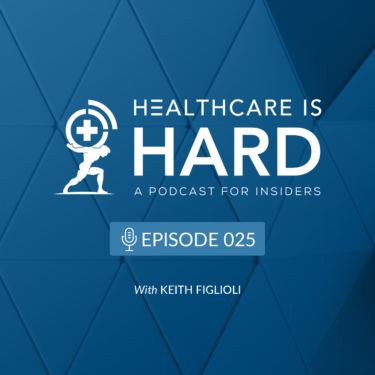
As someone who has been in the middle of healthcare policy and reform in the U.S. for decades, John McDonough has a unique perspective on how the rapidly changing political climate in Washington will impact the healthcare industry.
John’s dedication to public health began in 1985 after he was elected to the Massachusetts House of Representatives where he co-chaired the Joint Committee on Health Care until 1997. He later played a key role in the passage and implementation of the 2006 Massachusetts health reform law as Executive Director of Health Care for All, the state’s leading consumer health advocacy organization. With that experience, the U.S. Senate tapped John as Senior Advisor on National Health Reform from 2008 to 2010, where he worked on the development and passage of the Affordable Care Act.
John is currently Professor of Public Health Practice at the Harvard T.H. Chan School of Public Health and is the author of three books including, Inside National Health Reform and Experiencing Politics: A Legislator’s Stories of Government and Health Care.
In this edition of the Healthcare Is Hard podcast, Keith Figlioli asks John to draw upon his years developing and implementing healthcare policy to reflect on the outcome of the recent election and the implications it will have for the healthcare industry. The topics they address include:
- Steering a divided government. John talks about how historically rare it’s been for a Democratic president to take office without majorities in the House and Senate – something that hasn’t happened since Grover Cleveland in 1884. He discusses what that will mean for a Biden administration, unless Democrats are successful in their longshot bid for two Senate seats in Georgia’s runoff elections.
- Presidential regimes that define decades. John shares a theory about how era-defining presidents set a course that lasts well beyond their terms to cross decades and multiple administrations. The last era began with FDR who changed the national discussion and tone when he took office in 1933, and lasted until the end of the Carter administration. The Regan revolution set a new tone in the 1980s, rooted in competition and capitalism, that has impacted all areas of society including healthcare. Historically, each era has ended with a national calamity – the Great Depression during Hoover’s term, the energy and Iran hostage crisis for Carter – and a one term president. John ponders whether the coronavirus pandemic and President Trump’s single term could be the beginning of an era-defining Biden administration.
- The ACA’s little secret. After more than 10 years, John believes the ACA has stood the test of time, causing changes in delivery systems, accountable care organizations, bundled payments and the value-based care revolution to become embedded in the structure of the U.S. healthcare system. The secret about the ACA, he says, is that both Democrats and Republicans support this approach and don’t want to see it dismantled because they don’t have ideas to replace it.
- Strengthening CMMI. President Obama’s administration used the Center for Medicare & Medicaid Innovation as a vehicle for change, and John expects a Biden administration to rely on it even more. He sees a new administration testing the limits of executive authority and being aggressive at using CMMI to take risk and demonstrate feasibility of ideas that can then be implemented more broadly.
To hear John and Keith talk about these topics and more, listen to this episode of Healthcare is Hard: A Podcast for Insiders.
